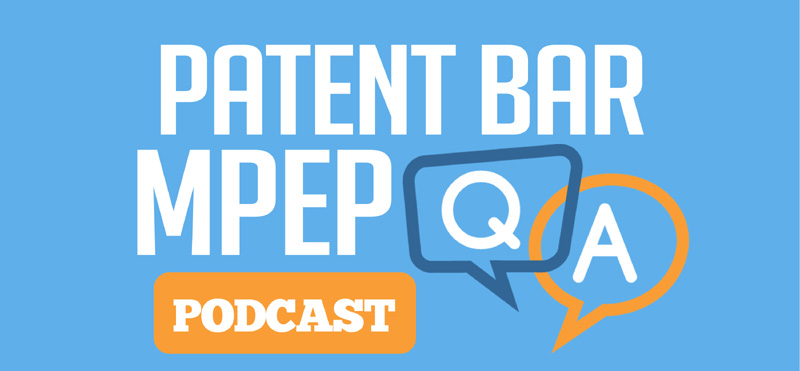
Podcast: Play in new window | Download
Subscribe: Apple Podcasts | RSS
Question:
What are the four purposes 35 U.S.C. 101 has been interpreted as imposing?
Answer:
35 U.S.C. 101 has been interpreted as imposing four purposes.
- First, 35 U.S.C. 101 limits an inventor to ONE patent for a claimed invention. If more than one patent is sought, a patent applicant will receive a statutory double patenting rejection for claims included in more than one application that are directed to the same invention.
- Second, the inventor(s) must be the applicant in an application filed before September 16, 2012, (except as otherwise provided in pre-AIA 37 CFR 1.41(b)) and the inventor or each joint inventor must be identified in an application filed on or after September 16, 2012.
- Third, 35 U.S.C. 101 defines which categories of inventions are eligible for patent protection.
An invention that is not a machine, an article of manufacture, a composition or a process cannot be patented. - Fourth, 35 U.S.C. 101 serves to ensure that patents are granted on only those inventions that are “useful.”
Chapter Details:
The answer to this question can be found in chapter 2100 of the MPEP. This chapter covers Patentability.
The answer is from the 9th Edition, Revision 10.2019. Depending on future changes to the MPEP, the question and answer may or may not be applicable in later Editions or revisions.
Section Summary:
This question and answer come from section 2106.07 of the MPEP. The following is a brief summary of section 2106.07.
2106.07 Formulating and Supporting Rejections For Lack Of Subject Matter Eligibility
Eligibility rejections must be based on failure to comply with the substantive law under 35 U.S.C. 101 as interpreted by judicial precedent. Examination guidance, training, and explanatory examples discuss the substantive law and establish the policies and procedures to be followed by examiners in evaluating patent applications for compliance with the substantive law, but do not serve as a basis for a rejection.
